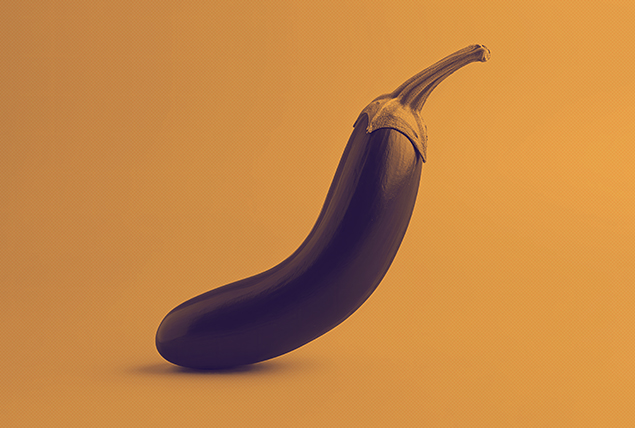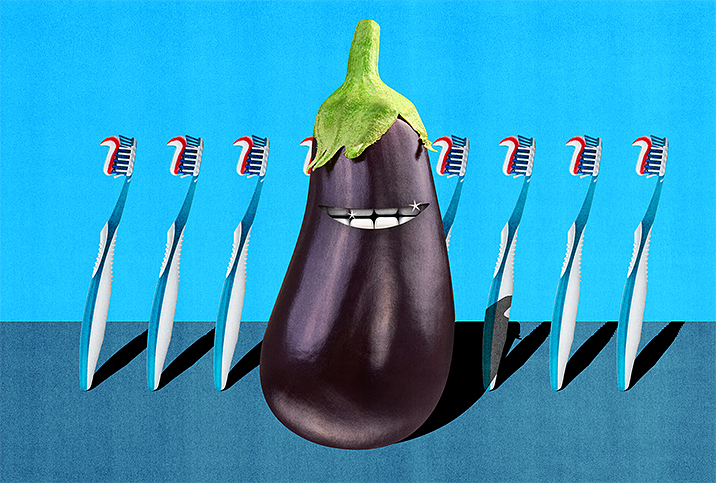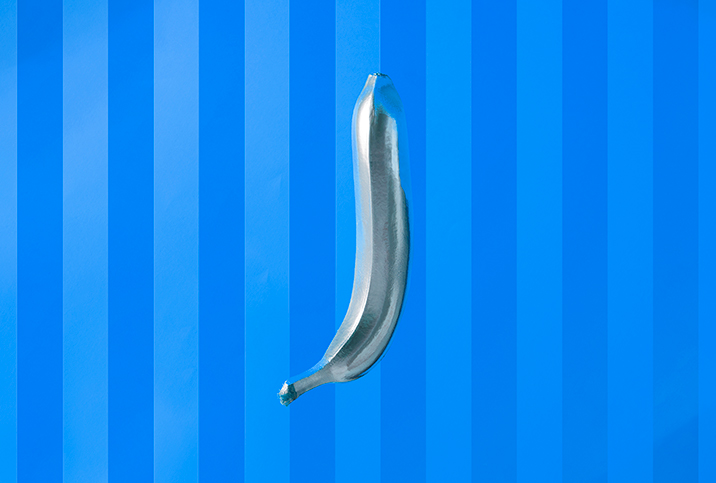What Do Boners Feel Like? Hopefully Not Like This

Key Points
- Erections are necessary and can be fun sometimes, but that doesn't mean they don't come without complications.
- A number of penile issues can cause erections that are painful and may even cause long-term damage.
- Any of these boners that cause pain are reasons to see a doctor immediately.
Hot take: Erections are a good thing. Sometimes, they can even be considered great.
Boners can be beautiful, beneficial and even bountiful if that's what you're going for.
However, a few conditions may include painful erections—the kind of boner no man wants. We're not just talking about an awkward school-age stiffy you get when you're called on to do a math problem in front of the class.
We'll learn about a handful of harrowing hard-ons, related conditions that can cause painful erections and when you should see a doctor.
Priapism
Priapism is a medical condition in which a painful erection lasts several hours without sexual stimulation. Most of us have heard the standard warning tag on Viagra commercials: "Consult your doctor if your erection lasts more than four hours." But it's no laughing matter.
The condition is named after Priapus, a minor Greek deity dedicated to fertility and the protection of livestock who was known for his massively oversized, permanent erection. The overlooked part of his story, though, is that poor Priapus was cursed to suffer a sudden bout of erectile dysfunction (ED) whenever the opportunity to have sex arose.
For modern men who suffer untreated priapism, long-term ED is only one concern among many.
"Priapism is a persistent erection lasting over four hours unrelated to sexual arousal," said Amy Pearlman, M.D., a men's health specialist and co-founder of Prime Institute in Fort Lauderdale, Florida. "It may lead to irreversible erectile dysfunction, penile shortening and/or penile curvature if left untreated."
While priapism is relatively rare, there is a long list of potential causes.
"Medications like trazodone, some psychiatric medications, penile injections for the treatment of erectile dysfunction, cocaine and sickle cell disease can disrupt normal blood flow," Pearlman said. "This can lead to the trapping of blood within penile tissue and scar tissue formation. Seeking urgent medical evaluation is critical to reducing the risk of long-term changes in penile tissue."
Spider bites
Certain species of spiders can cause a type of priapism if you're unlucky enough to encounter one. The Brazilian wandering spider made the news in 2023 when one was spotted in a shop in Austria.
These nasty little buggers may originate in the Amazon but come with Greek nomenclature: They're called Phoneutria nigriventer, the first part of which is based on the Greek word for "murderess."
Even if she gives you a massive boner, this murderer will kill your mood for sex. These bites are reported to cause erections that cause intense overall pain and a spike in blood pressure.
Researchers wonder if it might be possible to utilize their venom to help men who have severe ED, specifically those for whom medications such as sildenafil and tadalafil aren't as effective.
Recommended
- The Role of Anxiety in Erectile Dysfunction: How much does your state of mind affect your sexual health?
- A Dating Guide for Erectile Dysfunction: Breaking down taboo subjects is the first step to a fulfilling sex life.
- How Long Can the Average Man Remain Erect?: The answer is tied to the length of sexual activity. There is such a thing as too long.
Post penile surgery
Erections can sometimes be unpredictable, but a simple thing like morning wood can lead to some painful erections for guys who have recently had certain types of penile surgery.
If you have stitches precariously holding the skin of your penis in place, and it decides to stretch out to full sail, you could run into some painful problems.
"Following any procedure on the penis, like circumcision or penile curvature repair, erections in the early postoperative time period may lead to pain and/or extra tension on the suture line, sometimes resulting in some opening of the incision," Pearlman said.
Talk about "popping a boner."
If unfortunate erections do cause sutures on the penis to come undone, you'll want to get those evaluated. But take heart: Depending on where you are in your recovery and what kind of procedure you're recovering from, you may be able to get by with them as is.
When older teens and adults get circumcisions done, it's not uncommon for their nocturnal erections to cause a stitch or two to pop out, and it's not the end of the world, said Amanda North, M.D., the director of urology at the Children's Hospital at Montefiore in the Bronx, New York.
"If it's a suture or two, they're going to heal just fine," North said. "The nice thing about operating on penises and scrotums is that it's pretty hard for them to not heal. Because the skin is stretchy and resilient, I feel like most of the time, it heals pretty well."
Peyronie's disease acute phase
Men who develop Peyronie's disease go through two distinct phases: the acute and chronic phases. The condition involves a tear in the tunica albuginea membrane that surrounds the erectile tissue of the penis and scar tissue forming at the site of the damage, causing the penis to curve more than it should.
The acute phase is the first 12 to 18 months, while the scar forms. Erections are usually somewhat painful during this time.
The good news is that it doesn't last, it's not damaging to get erections during this time and it may even be beneficial as erections may help the penis to curve less, stay more flexible and minimize the scar that does form.
"Getting erections in the acute phase of Peyronie's is not dangerous to the penis," Pearlman said. "And getting regular erections in the setting of new or chronic scar in the penis may be helpful to help maintain tissue health."
The takeaways
Erections can be a good thing for a multitude of reasons. If you love your little buddy, don't mess around if you end up with a long-lasting hard-on that won't go away.
It may seem funny, but it can cause real long-term damage if left untreated. See your doctor for help.


















